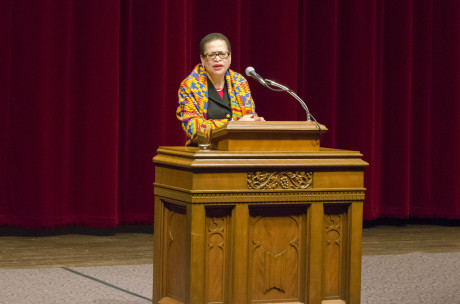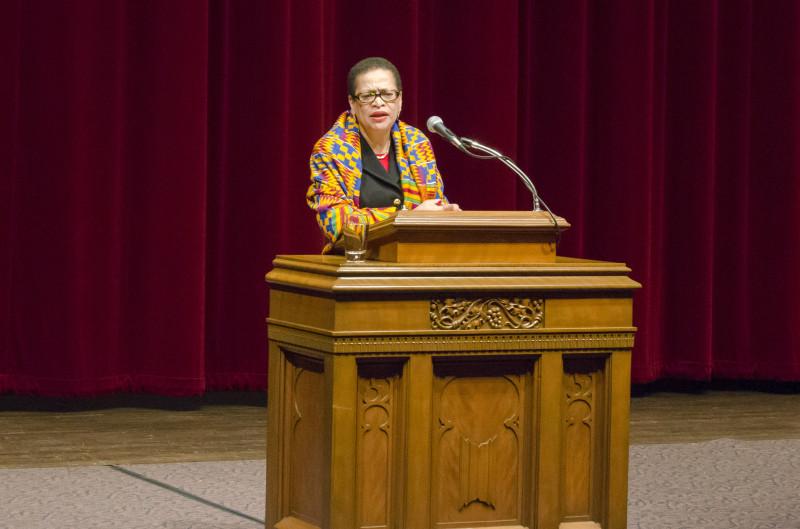
Julianne Malveaux, labor economist, former university president, author and television contributor, addressed Trinity University and the San Antonio community on Jan. 16 in honor of Martin Luther King, Jr. Malveaux’s lecture was entitled, “From the War on Poverty to the War on Poor People. What Would Dr. King Say?”
Malveaux opened her speech with a discussion on the hijacking of Dr. King’s legacy. She said the hijacking has been expressed two-fold.
“What you see is either a commercialization of Dr. King around this time of the year, or a reduction of him to one quote,” Malveaux said. “People often use the quote that begins, “˜I have a dream that my four little children…’ and not the quote which reads, “˜In a sense we have come to our nation’s capital to cash a check.'”
She referenced an advertisement by Toyota where the company attempted to capitalize on the national holiday, adding that maybe commercialization signifies legitimacy.
Throughout her speech, Malveaux addressed a wide variety of topics, including the debate around reparations for slavery, former Secretary of Defense Robert Gates’ book “Duty: Memoirs of a Secretary at War,” the Tea Party and Lyndon Johnson’s presidency.
Returning to the theme of the lecture, Malveaux discussed a hatred toward poverty in America and compared poverty to a kind of cannibalism.
“I believe the word poverty is not used enough,” said Malveaux. “We have gone from viewing poverty as systemic to viewing poverty as someone’s personal problem.”
To illustrate this point further, Malveaux told a personal story about a time when she had to press her sister to discover she was suffering financially.
Citing a “demonization of poor people,” Malveaux said that unfair characteristics have been attributed to those in greatest financial hardship. Those traits included an unwillingness to work, chronic laziness and a spreading of outright lies.
“When we look at the facts and figures,” said Malveaux, “we have to have some compassion for the folks at the bottom. How many of us follow up our talk? We have to have the courage to embrace Dr. King’s dream.”
Senior Caleb Franzmann, who attended both the speech and the march on Jan. 20, said that although Malveaux said that statistics often lie, she used a considerable number of them throughout her speech.
“I thought that was a bit ironic,” Franzmann said. “And I wanted her to elaborate more on income distributions, which she only really touched on during the question and answer period.”
Kelsea Yarbrough said she attended the lecture to take advantage of the experiences Trinity offers.
“We always talk about the diversity of Trinity,” said Yarbrough. “Attendance at lectures like this is what it’s all about.”
Students were asked by Campus and Community Involvement to swipe their Tiger Cards upon entrance to Laurie. The majority of students left the lecture, however, before the question-and-answer period began.
While no students asked Malveaux a question, she did entertain multiple questions, ranging from investing in education, stigmatization of the prison population, affirmative action, voting responsibility and the widening wealth gap in the United States. Malveaux was the seventeenth lecturer in the MLK, Jr. Commemorative series.







